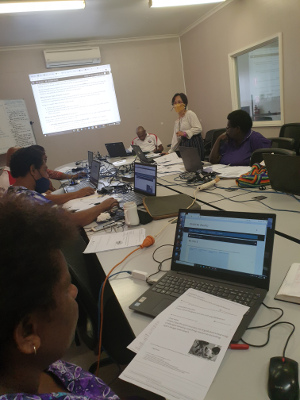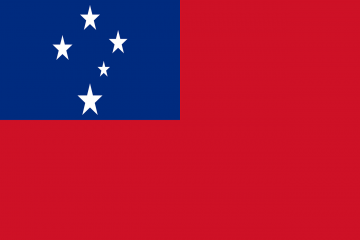The OER Foundation implemented its digital learning ecosystem in the Pacific region using cloud hosting services which cost only US$46 per month for the Commonwealth of Learning. Data generated from the inaugural Digital skills for OER Sharing course offered to 1540 Pacific school teachers indicates that the same infrastructure can support 10,000 learners, thus demonstrating the cost efficiencies Pacific nations can achieve by adopting cloud-based, Free and Open Source Software solutions.
The OER Foundation (OERF) has deployed its award winning Free and Open Source Software (FOSS) digital learning ecosystem for the Pacific Pacific Partnership for Open, Distance and Flexible Learning, led by the Commonwealth of Learning, to provide free online capacity development to 1,540 teachers from Pacific Small Island Developing States (SIDS) in partnership with Pacific Centre for Flexible and Open Learning for Development (PACFOLD) and funding support from New Zealand Ministry of Foreign Affairs and Trade.
The initiative demonstrates the potential for Pacific SIDS to host their own cloud hosting solutions for online courses for as little as US$46 per month, assuming local skills for system administration. Monitoring the server’s performance during the inaugural cohort of the Digital Skills for OER Sharing (DS4OERS) online course, the OERF is confident that this same FOSS infrastructure could easily support 10,000 learners.

Dr Janet Subagan-Mondez, from the Flexible, Open and Distance Education Unit of the Department of Education in Papua New Guinea, facilitates a face-to-face session for learners taking the DS4OERS online course.
The Commonwealth of Learning commissioned the OER Foundation to set up a WordPress Multisite instance on their own sub-domain: pacificopencourses.col.org. WordPress Multisite is a configuration of the FOSS content management system that enables multiple course sites to run on a single installation of WordPress. The OERF deployed a DigitalOcean Droplet, which is a flexible Linux-based virtual server in the cloud, on which to install the WordPress Multisite. Using FOSS components there are no ongoing or per-user licensing costs for the software deployed.
Materials for the new DS4OERS online course were authored in WikiEducator, itself a FOSS technology, to provide version control for collaborative development and flexibility publishing multiple iterations of the course site. This facilitates reuse and remix options in the future for any country wanting to host their own versions of the course. Using FOSS scripts developed and shared by the OER Foundation, the collection of wiki pages which make up the DS4OERS course where published to the WordPress Multisite used to deliver the course. (For more information, you can view this video summary of the OERF’s digital learning ecosystem.)
Samoa’s Knowledge Society Initiative has recognised the importance of developing systems administration skills in using FOSS technologies. The UNESCO Office for the Pacific States, working in collaboration with the Ministry of Education, Sports, and Culture (MESC) has sought the support of the OERF to train Samoan technologists to deploy and maintain FOSS solutions. A number of FOSS applications including WordPress Multisite, Discourse (Forum software), Moodle (Learning Management System), and Bitwarden (Password management) have already been set up under the MESC innovative LifeLong Learning Lab (MiLLL) initiative to build local skills in hosting FOSS tools.
Published as OER, the DS4OER course will be hosted on a local Samoan WordPress Multisite to run a train-the-trainer initiative so that individual schools have local facilitators to help teachers taking the course in the future.
These projects allude to the potential for a cooperative solution in the Pacific where technologists from SIDS countries work together providing and maintaining cloud-based solutions for online delivery across the region.
Attributions
Learners from Papua New Guinea by FODE licensed under CC-BY-SA license.
Cloud computing on mobile phone by Geralt licensed under Pixabay license.

